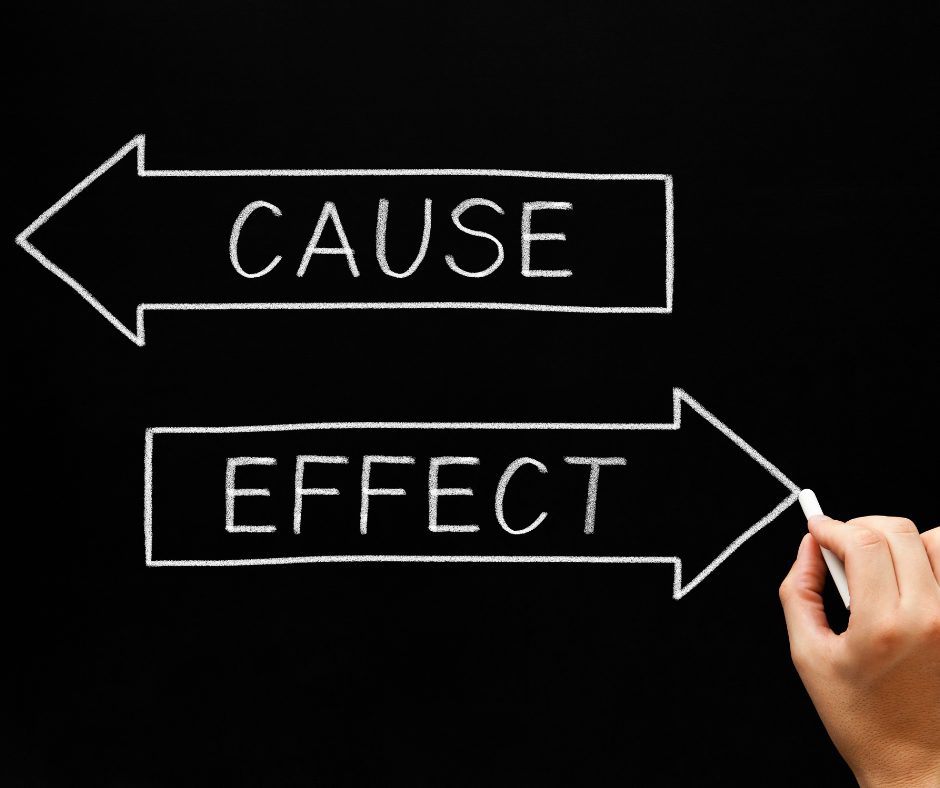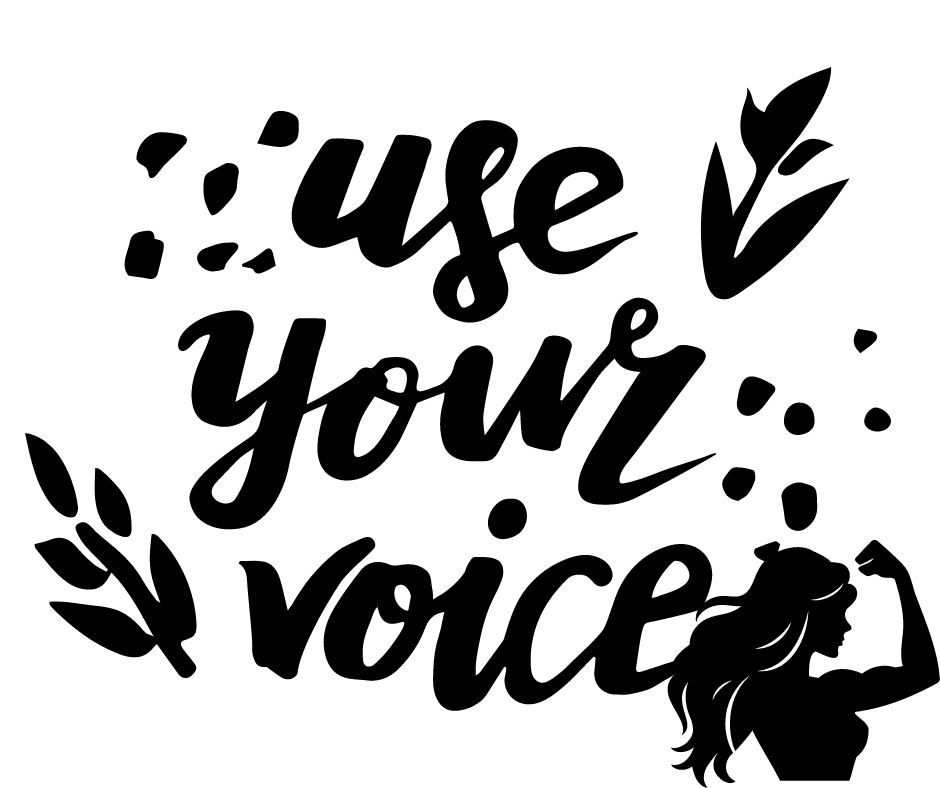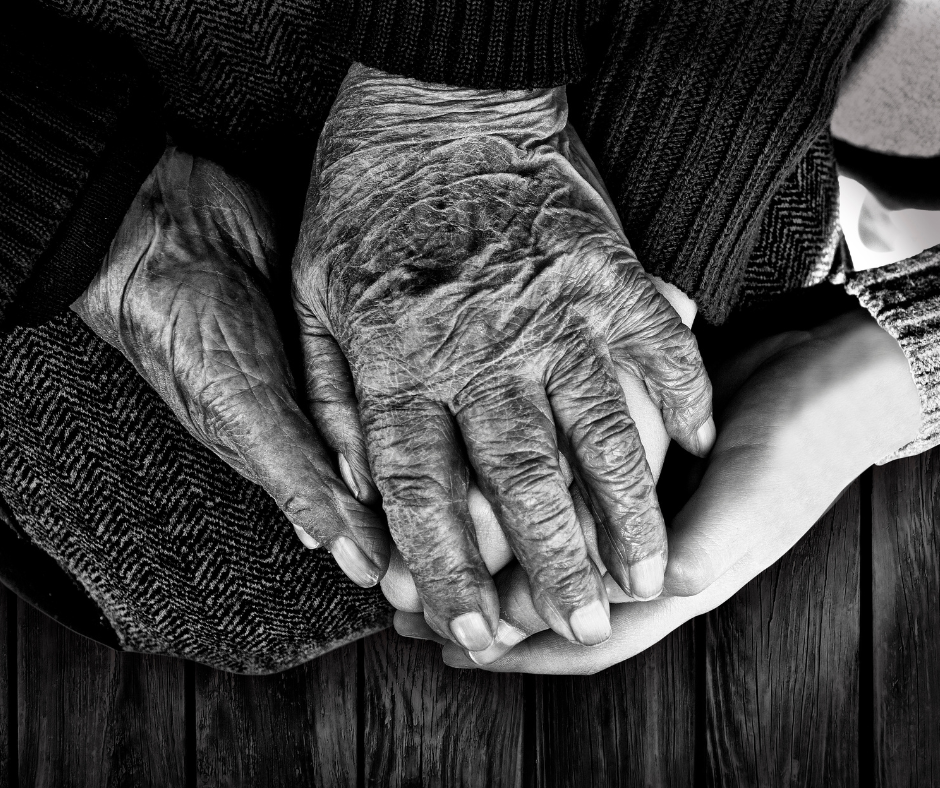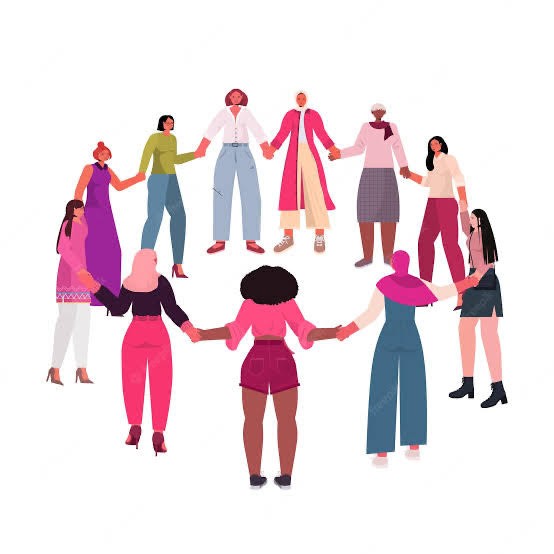In a world where love stories often begin with “till death do us part,” the reality of widowhood can strike like a bolt of lightning, leaving lives shattered and futures uncertain. The plight of widows is an urgent and often overlooked issue that demands our immediate attention and action. This blog aims to delve into the causes and effects of widowhood, offering a voice to those who have been silenced by loss and providing a roadmap for support and empowerment. Understanding the Causes of Widowhood Widowhood is a multifaceted issue with various causes that can impact women across the globe. Understanding these causes is the first step in addressing the profound effects of losing a spouse. 1. Illness and Disease Chronic illnesses such as cancer, heart disease, and diabetes are leading causes of death worldwide, often leaving spouses behind to navigate life alone. The emotional toll of watching a loved one suffer can be overwhelming, compounded by the grief of their passing. 2. Accidents and Unforeseen Tragedies Life can change in an instant. Car accidents, workplace mishaps, and other unforeseen tragedies can abruptly end a life, leaving behind a grieving widow. The sudden nature of these events can make the grieving process even more difficult. 3. Violence and Conflict In many parts of the world, violence and conflict claim countless lives daily. From domestic violence to war, the impact is devastating, creating widows who must not only deal with loss but also navigate the dangers that remain. 4. Natural Disasters Earthquakes, floods, and other natural disasters can decimate communities, taking lives indiscriminately. Widows left in the wake of such events face the double burden of personal loss and communal rebuilding. The Ripple Effects of Widowhood The effects of widowhood extend far beyond the immediate grief and loss. These effects can permeate every aspect of a widow’s life, creating lasting challenges that require community and societal intervention. 1. Emotional and Mental Health Grief is a powerful and often debilitating emotion. Widows may experience depression, anxiety, and even post-traumatic stress disorder (PTSD). The lack of adequate mental health support can exacerbate these issues, leading to a prolonged and difficult grieving process. 2. Economic Hardship The loss of a spouse can lead to significant financial strain, especially if the deceased was the primary breadwinner. Widows may struggle to find employment, pay bills, and provide for their children, leading to a cycle of poverty that is hard to break. 3. Social Isolation Widows often face social isolation, losing not only their partner but also the social networks and support systems that came with that relationship. Cultural stigmas and societal expectations can further alienate widows, making it difficult for them to reintegrate into their communities. 4. Impact on Children Children of widows suffer immensely, experiencing the loss of a parent and often the secondary effects of economic hardship and social isolation. These children may face emotional and behavioral issues, affecting their performance in school and their overall well-being. Taking Action: How We Can Help The voice of widows needs to be heard, and their needs must be addressed with urgency and compassion. Here are actionable steps that individuals, communities, and governments can take to support widows and mitigate the effects of their loss. 1. Provide Emotional and Mental Health Support Counseling Services: Establish accessible and affordable counseling services specifically tailored for widows. Support Groups: Create and promote support groups where widows can share their experiences and find solace in community. Public Awareness Campaigns: Raise awareness about the mental health challenges faced by widows to reduce stigma and encourage support. 2. Economic Empowerment Job Training and Placement Programs: Develop programs that offer job training and placement services for widows to help them become financially independent. Financial Assistance: Provide direct financial aid to widows in need, helping them cover essential expenses during their transition. Microfinance Opportunities: Support microfinance initiatives that allow widows to start small businesses and become economically self-sufficient. 3. Combat Social Isolation Community Engagement: Encourage community engagement programs that include widows in social and cultural activities. Advocacy and Legal Support: Advocate for legal protections against discrimination and support widows in understanding and claiming their rights. Educational Initiatives: Implement educational programs that challenge societal norms and reduce stigma associated with widowhood. 4. Support for Children of Widows Scholarships and Educational Support: Offer scholarships and educational support for children of widows to ensure they have access to quality education. Childcare Services: Provide affordable childcare services to help widows balance work and family responsibilities. Psychological Support: Ensure children have access to psychological support to help them cope with their loss and its effects. A Call to Action The journey of a widow is fraught with challenges, but it is not one they need to walk alone. As a society, we have a moral obligation to stand with them, to offer our support and compassion, and to work tirelessly to alleviate the burdens they carry. Let us be the voice of widows, echoing their needs and championing their rights. Together, we can create a world where no widow feels abandoned, and every widow finds the strength and support to rebuild her life. Join Us in Making a Difference Every action counts. Whether through volunteering, donating, or simply spreading awareness, you can make a difference in the lives of widows. Join us in our mission to provide a voice for widows and create a more compassionate and supportive world for all.
10 Things Successful Mompreneurs Do Differently
Introduction: Being a mompreneur – a mother who runs her own business – is a remarkable journey. It’s a path filled with challenges, triumphs, and the balancing act of managing both family and career. While the road may be tough, successful mompreneurs navigate it with finesse, adopting unique strategies that set them apart. In this blog post, we’ll explore the ten key things that successful mompreneurs do differently, offering actionable insights for aspiring and current mompreneurs alike. Prioritize Self-Care: Successful mompreneurs understand the importance of self-care. They prioritize their physical, mental, and emotional well-being, recognizing that taking care of themselves enables them to better care for their families and businesses. Actionable Tip: Schedule regular self-care activities such as exercise, meditation, or hobbies, and treat them as non-negotiable appointments. Set Clear Boundaries: Mompreneurs who thrive establish clear boundaries between work and family life. They designate specific work hours and family time, ensuring that each receives the attention it deserves. Actionable Tip: Create a dedicated workspace and establish ground rules for when you’re “at work” and when you’re “at home.” Delegate and Outsource: Successful mompreneurs understand that they can’t do it all alone. They delegate tasks that don’t require their personal touch and outsource aspects of their business that are outside their expertise. Actionable Tip: Identify tasks that can be delegated or outsourced, such as administrative work, social media management, or accounting, and seek assistance accordingly. Practice Time Management: Time is a precious resource for mompreneurs, and successful ones manage it wisely. They prioritize tasks, set deadlines, and utilize tools and techniques to maximize productivity. Actionable Tip: Use time-blocking techniques to allocate specific time slots for different activities, and leverage productivity apps or tools to streamline your workflow. Continuously Learn and Grow: To stay ahead in the ever-evolving business landscape, successful mompreneurs are committed to lifelong learning. They invest in personal and professional development, acquiring new skills and knowledge relevant to their industry. Actionable Tip: Dedicate time each week to learning something new, whether it’s through online courses, workshops, or networking events. Cultivate a Supportive Network: Building a strong support network is crucial for mompreneurs, and successful ones surround themselves with like-minded individuals who understand their unique challenges. They seek out mentorship, join networking groups, and nurture relationships with other mompreneurs. Actionable Tip: Join online communities or local meetups specifically for mompreneurs to connect with peers, share experiences, and seek advice. Embrace Flexibility: Flexibility is key for mompreneurs juggling the demands of motherhood and entrepreneurship. Successful mompreneurs embrace flexibility in their schedules, approaches, and expectations, adapting to changing circumstances with grace. Actionable Tip: Embrace a mindset of flexibility and resilience, knowing that unexpected challenges will arise, and be prepared to pivot when necessary. Focus on High-Impact Activities: Rather than getting bogged down in busywork, successful mompreneurs focus on high-impact activities that drive results for their business. They prioritize tasks that align with their goals and have the greatest potential for growth. Actionable Tip: Regularly evaluate your tasks and projects, identifying those that have the biggest impact on your business success, and allocate your time and energy accordingly. Practice Mindfulness: Mindfulness is a powerful tool for mompreneurs to stay present, focused, and grounded amidst the chaos of balancing work and family life. Successful mompreneurs incorporate mindfulness practices into their daily routine, whether it’s through meditation, deep breathing exercises, or simply being fully present in the moment. Actionable Tip: Start and end your day with a brief mindfulness practice to center yourself and set a positive tone for the day ahead. Celebrate Achievements and Milestones: Finally, successful mompreneurs celebrate their achievements and milestones, no matter how big or small. They take time to acknowledge their progress, reflect on their journey, and express gratitude for the support they’ve received along the way. Actionable Tip: Keep a journal or gratitude log to record your achievements, milestones, and moments of gratitude, and take time to celebrate your successes regularly. Conclusion: Becoming a successful mompreneur requires dedication, resilience, and a willingness to adopt strategies that set you apart from the crowd. By prioritizing self-care, setting clear boundaries, practicing time management, and embracing flexibility, mompreneurs can create a thriving business while nurturing their families. Remember, success is not just about reaching your goals; it’s also about enjoying the journey and celebrating every step along the way.
Empower Widows: The Voice of Change
Introduction: Widows often find themselves in vulnerable positions, facing economic hardship, social stigma, and emotional distress. In many cultures, they are marginalized and overlooked, struggling to rebuild their lives after the loss of their spouses. However, empowering widows is not just an act of charity; it’s a necessity for creating a more equitable and just society. In this blog, we delve into the importance of empowering widows and how organizations like The Voice of Widows are making a difference in their lives. The Plight of Widows: The journey of a widow is often fraught with challenges. Suddenly finding themselves solely responsible for their families, widows encounter financial instability, legal hurdles, and social isolation. In many communities, widows face discrimination and are deprived of basic rights such as property ownership and inheritance. Moreover, the loss of a spouse can lead to emotional trauma, leaving widows feeling abandoned and vulnerable. Empowering Widows: A Path to Security and Dignity: Empowerment is the key to helping widows reclaim their lives and live with dignity. This empowerment involves providing them with access to education, vocational training, and economic opportunities. By equipping widows with skills and resources, they can become financially independent and self-sufficient. Additionally, empowering widows means advocating for their rights and challenging societal norms that perpetuate discrimination and marginalization. The Voice of Widows: A Beacon of Hope: One organization that is at the forefront of empowering widows is The Voice of Widows. Founded on the belief that every widow deserves support and opportunities, this organization is dedicated to improving the lives of widows around the world. Through various initiatives such as skill development programs, legal assistance, and community support networks, The Voice of Widows is breaking barriers and fostering resilience among widows. Creating Sustainable Change: Empowering widows is not a one-time effort; it requires sustained commitment and collaboration. By partnering with governments, NGOs, and local communities, organizations like The Voice of Widows can create systemic change and address the root causes of widowhood vulnerability. This includes advocating for policy reforms, raising awareness about widow rights, and promoting gender equality. How You Can Help: Supporting organizations like The Voice of Widows is crucial in their mission to empower widows. Whether through donations, volunteering, or spreading awareness, every contribution makes a difference in the lives of widows. Additionally, advocating for gender equality and challenging stereotypes can help create a more inclusive society where widows are valued and respected. Conclusion: Empowering widows is not just a matter of charity; it’s a fundamental human right. By providing widows with the support and opportunities they need to thrive, we can create a more equitable and compassionate world. Through organizations like The Voice of Widows, we can amplify the voices of widows and work towards a future where every widow can live a secure and dignified life. Join us in our mission to empower widows and create lasting change.
Empowering Widows Through Education: The Voice of Widows Initiative
Introduction: In a world that often overlooks the struggles of widows, initiatives that provide support and empowerment are invaluable. The Voice of Widows, an organization committed to advocating for and uplifting widows, has taken a significant step forward by partnering with an education charity to reach out to widows of all ages. This collaboration aims not only to address the educational needs of widows but also to empower them to build better futures for themselves and their families. Addressing Educational Needs: Education is a powerful tool for empowerment, offering widows the opportunity to acquire new skills, gain confidence, and improve their economic prospects. However, widows, particularly those from disadvantaged backgrounds, often face numerous barriers to accessing education. These barriers may include financial constraints, lack of support networks, and societal stigmas. The partnership between The Voice of Widows and the education charity seeks to break down these barriers by providing widows with access to educational resources, scholarships, and mentorship programs. By addressing both the practical and emotional challenges widows encounter, this initiative aims to create a supportive environment where they can thrive academically and personally. Empowering Widows of All Ages: One of the most remarkable aspects of this initiative is its inclusivity. By reaching out to widows of all ages, the program recognizes that education is a lifelong journey and that it is never too late to pursue learning opportunities. Whether they are young widows grappling with the sudden loss of a spouse or elderly widows seeking to enhance their skills, every widow deserves the chance to pursue education and personal development. Through tailored educational programs and flexible learning options, the initiative ensures that widows can access education in a way that suits their individual circumstances. From vocational training and adult literacy classes to online courses and university scholarships, the program offers a wide range of opportunities for widows to expand their knowledge and skills. Building Brighter Futures: Education is not just about acquiring knowledge; it is also about unlocking potential and creating pathways to a brighter future. By investing in the education of widows, we are not only empowering individuals but also strengthening families and communities. Educated widows are better equipped to support themselves and their children, breaking the cycle of poverty and dependency. Moreover, educated widows are more likely to become agents of change in their communities, advocating for their rights and contributing to social and economic development. By harnessing the power of education, we can empower widows to overcome adversity, pursue their dreams, and become leaders in their own right. Conclusion: The partnership between The Voice of Widows and the education charity represents a significant step forward in the journey towards empowering widows worldwide. By recognizing the importance of education and reaching out to widows of all ages, this initiative is creating opportunities for personal growth, economic empowerment, and social transformation. As we continue to support widows on their educational journey, we are not just changing individual lives; we are building a more inclusive and equitable society for all.
Unveiling the Challenging Plight of Widows: Advocacy Through The Voice of Widows
In the tapestry of human experience, few threads are as intricately woven with sorrow and resilience as that of widowhood. Yet, despite its prevalence across cultures and continents, the plight of widows often remains shrouded in silence, overlooked by mainstream discourse and policy agendas. Today, we lift the veil on this often-neglected demographic, exploring the challenges they face and shedding light on the critical role of advocacy groups like “The Voice of Widows.” Widowhood, with its profound emotional and practical challenges, is an experience that transcends borders and socio-economic divides. Whether in bustling metropolises or remote villages, widows grapple with grief, financial instability, social stigma, and legal hurdles. In many societies, widows find themselves marginalized, stripped of agency, and relegated to the fringes of community life. One of the most pressing challenges widows face is economic vulnerability. The loss of a spouse often plunges them into financial uncertainty, especially if they lack access to education, employment opportunities, or inheritance rights. In patriarchal societies, widows may find themselves dispossessed of property and assets, leaving them destitute and dependent on the goodwill of relatives or charity. Moreover, social stigmatization compounds the already heavy burden of widowhood. Cultural norms and taboos surrounding widowhood can lead to ostracism, discrimination, and even violence. Widows may be blamed for their husband’s death, labeled as cursed, or subjected to harmful traditional practices like widow cleansing or forced remarriage. Such indignities not only erode their sense of self-worth but also hinder their ability to rebuild their lives. Legal barriers further exacerbate the challenges faced by widows. In many jurisdictions, discriminatory laws and customs deny widows the right to inherit property, access healthcare, or make decisions about their own lives. Without legal protections, widows are vulnerable to exploitation, coercion, and abuse, perpetuating a cycle of disadvantage for generations to come. Amidst these formidable challenges, organizations like “The Voice of Widows” emerge as beacons of hope and change. By amplifying the voices of widows and advocating for their rights, these groups strive to dismantle systemic barriers and foster inclusive societies. Through community outreach, education, and policy advocacy, they empower widows to assert their rights, access essential services, and reclaim their dignity. “The Voice of Widows” embodies this spirit of resilience and solidarity, providing a platform for widows to share their stories, seek support, and demand justice. Through grassroots initiatives and partnerships with policymakers, they champion legal reforms, social programs, and economic opportunities tailored to the needs of widows. By fostering networks of mutual support and solidarity, they challenge the isolation and invisibility that often accompany widowhood. As we navigate the complex terrain of widowhood, let us heed the voices of those who have walked this path. Let us recognize the inherent dignity and resilience of widows, and commit ourselves to building a world where no widow is left behind. Through collective action and advocacy, we can ensure that the plight of widows receives the attention and compassion it deserves, transforming grief into empowerment and solidarity. In conclusion, the journey of widowhood is fraught with challenges, but it is also marked by strength, resilience, and the enduring power of community. By standing in solidarity with widows and amplifying their voices, we can create a more just and inclusive world for all.
Healing, Support, and Education: Navigating the Journey of Widows and Widowers
Losing a spouse is undoubtedly one of life’s most challenging experiences. The journey of grief, healing, and adjustment that follows can be overwhelming, lonely, and often misunderstood. Widows and widowers find themselves grappling with a myriad of emotions, responsibilities, and uncertainties as they navigate through this profound loss. In such times, finding support, education, and a sense of community becomes invaluable. Understanding the Journey The experience of losing a spouse is deeply personal and unique to each individual. While some may find solace in memories and support networks, others may struggle with feelings of isolation, financial stress, or even guilt. Recognizing and validating these diverse experiences is crucial in providing effective support to widows and widowers. Healing Through Support In times of grief, having a supportive community can make a world of difference. Organizations like “The Voice of Widows” play a vital role in offering a safe space for widows and widowers to share their stories, connect with others who understand their journey, and access resources tailored to their needs. Founded on the principles of empathy, understanding, and empowerment, “The Voice of Widows” aims to be a beacon of hope for those navigating the tumultuous waters of widowhood. Through support groups, counseling services, and educational workshops, the organization strives to foster healing, resilience, and a sense of belonging among its members. Education as Empowerment In addition to emotional support, education plays a crucial role in empowering widows and widowers to rebuild their lives. From financial planning and legal matters to coping strategies for grief and self-care, access to relevant information equips individuals with the knowledge and tools needed to navigate the practical challenges of widowhood. “The Voice of Widows” recognizes the importance of education in empowering its members to make informed decisions and regain a sense of control over their lives. Through workshops, seminars, and online resources, the organization strives to provide valuable insights and practical guidance on various aspects of widowhood, ensuring that individuals feel empowered to take charge of their futures. Building a Community of Resilience Widowhood is not the end of the road but rather the beginning of a new chapter—a journey of self-discovery, growth, and resilience. By coming together, sharing experiences, and supporting one another, widows and widowers can find strength in solidarity and hope in the promise of tomorrow. As we continue to navigate the complexities of life after loss, let us remember that healing is not a solitary endeavor but a collective journey—one that is nurtured by compassion, understanding, and the unwavering support of community. Together, we can create a world where widows and widowers are not defined by their loss but empowered by their resilience, and where organizations like “The Voice of Widows” serve as beacons of light in the darkness of grief. In closing, let us embrace the power of unity, empathy, and education in transforming the journey of widowhood from one of despair to one of hope, healing, and new beginnings.
Empowering Widows: A Guide to Working with Widows More Effectively
Introduction: Widowhood is a profound experience that affects millions of women worldwide. The journey of a widow is often marked by grief, challenges, and the need for support. As an organization committed to serving widows, The Voice of Widows understands the importance of effective engagement and support for this vulnerable demographic. In this blog, we explore strategies for working with widows more effectively, highlighting the vital role organizations like ours play in empowering and uplifting widows in their time of need. Understanding the Needs of Widows: The first step in working effectively with widows is understanding their diverse needs. Widows come from varied backgrounds, cultures, and socioeconomic statuses, and their experiences of widowhood can differ significantly. Some widows may face financial insecurity, while others grapple with social isolation, mental health challenges, or legal complexities. By recognizing the unique circumstances of each widow, organizations can tailor their support services to address specific needs and promote holistic well-being. Building Empathy and Trust: Empathy forms the cornerstone of effective widow support. Widows often feel a range of emotions, including grief, loneliness, and uncertainty about the future. By demonstrating empathy and actively listening to their stories, organizations can create a safe space where widows feel understood and validated. Building trust is equally crucial, as widows may be hesitant to seek help due to fear of judgment or exploitation. Establishing trust through transparency, confidentiality, and consistent support fosters a strong foundation for meaningful engagement. Providing Practical Assistance: Practical assistance can significantly alleviate the burdens faced by widows. This may include financial aid, access to legal resources, assistance with paperwork and documentation, or help navigating social services. By offering tangible support, organizations empower widows to address immediate challenges and regain a sense of control over their lives. Additionally, providing opportunities for skill-building, vocational training, or entrepreneurship can enhance widows’ long-term economic independence and self-sufficiency. Fostering Community and Connection: Social isolation is a prevalent issue among widows, particularly those who lack familial or community support networks. Creating opportunities for widows to connect with others who share similar experiences can combat loneliness and foster a sense of belonging. This may involve organizing support groups, peer mentoring programs, or community events where widows can forge meaningful connections, exchange advice, and draw strength from one another’s resilience. Building a supportive community is instrumental in promoting emotional well-being and rebuilding social networks post-loss. Advocating for Policy and Legal Reform: Beyond individual support, organizations like The Voice of Widows play a crucial role in advocating for policy and legal reforms that protect the rights and interests of widows. This may include advocating for inheritance rights, pension benefits, access to healthcare, and measures to prevent discrimination and exploitation. By amplifying the voices of widows and collaborating with policymakers, organizations can drive systemic change and create a more equitable society for widows everywhere. Conclusion: Working with widows effectively requires a multifaceted approach that addresses their diverse needs with empathy, practical assistance, community support, and advocacy. Organizations like The Voice of Widows play a pivotal role in empowering widows, providing them with the resources, support, and solidarity they need to navigate the challenges of widowhood and rebuild their lives with dignity and resilience. By working together, we can create a world where widows are supported, valued, and empowered to thrive.
Uplifting Widows: The Resilient Voices of Change
Introduction: In the journey of life, we often encounter challenges that test our resilience and strength. For widows, the loss of a partner brings forth a unique set of difficulties, ranging from emotional upheaval to financial instability. However, amidst these trials, widows around the world are rising, empowered by their own resilience and the support of organizations like “The Voice of Widows”. In this blog, we explore the profound journey of self-empowerment among widows and the pivotal role organizations like yours play in amplifying their voices and fostering positive change. The Silent Strength of Widows: Widows, often overlooked and underestimated, possess an inherent strength that emerges from their resilience in the face of adversity. The loss of a spouse can leave them navigating through a maze of emotions – grief, loneliness, and uncertainty. Yet, within the depths of their sorrow, widows discover an inner resolve, a silent strength that propels them forward. Amidst their grief, widows often find themselves thrust into unfamiliar roles, shouldering responsibilities they never imagined. From managing households to providing for their families, they embody resilience in action. It is this resilience that forms the cornerstone of self-empowerment among widows – the ability to adapt, persevere, and thrive despite the challenges they face. The Role of Self-Empowerment: Self-empowerment among widows transcends mere survival; it encompasses a journey of reclaiming one’s identity, voice, and agency. Empowerment enables widows to recognize their inherent worth and potential, breaking free from the shackles of societal stigma and limitations. Through self-empowerment, widows embrace their autonomy, making decisions that shape their lives and futures. They seek out opportunities for personal growth, education, and skill development, reclaiming control over their destinies. Empowerment fosters a sense of liberation, allowing widows to redefine their narratives and pursue their dreams with unwavering determination. The Voice of Widows: A Beacon of Hope: In the quest for self-empowerment, organizations like “The Voice of Widows” serve as beacons of hope, offering support, resources, and a platform for widows to amplify their voices. Founded on the principles of empowerment and advocacy, your organization plays a pivotal role in championing the rights and well-being of widows worldwide. Through various initiatives such as education programs, vocational training, and community outreach, “The Voice of Widows” empowers widows to break the cycle of poverty and dependency. By providing access to essential services, legal assistance, and psychosocial support, you create a nurturing environment where widows can heal, grow, and thrive. Moreover, your organization serves as a catalyst for social change, challenging stereotypes and advocating for gender equality and widows’ rights. By raising awareness, fostering dialogue, and mobilizing communities, you pave the way for a more inclusive and equitable society where widows are valued and empowered. Conclusion: In the tapestry of human experience, widows emerge as resilient warriors, embodying the transformative power of self-empowerment. Through their strength, courage, and resilience, they defy the odds, inspiring hope and change in their communities and beyond. With organizations like “The Voice of Widows” by their side, they embark on a journey of empowerment, reclaiming their voices and rewriting their destinies. Together, let us continue to champion the cause of widows’ empowerment, ensuring that every widow finds the support, dignity, and opportunity she deserves.
Empowering Widows Through Financial Literacy: The Voice of Widows’ Mission
In many parts of the world, widows face immense challenges, from social stigmatization to economic hardship. Often left to navigate life’s complexities alone, they bear the weight of managing their households and finances without the necessary tools or knowledge. However, amidst these struggles, there shines a beacon of hope: organizations like The Voice of Widows are stepping up to empower these resilient women, particularly through initiatives aimed at educating them in personal financial planning. Financial literacy is not just about understanding numbers; it’s about gaining the confidence and skills to make informed decisions about money matters. For widows, who may suddenly find themselves solely responsible for their financial well-being, this knowledge becomes even more critical. ### Understanding the Need Widows often face unique financial challenges. They may not have been actively involved in managing household finances before their spouse’s passing, leaving them with little knowledge of budgeting, investing, or retirement planning. Moreover, cultural and social barriers can further isolate them from resources and support networks. Recognizing these challenges, The Voice of Widows has made it their mission to bridge the gap by providing comprehensive financial education tailored to the needs of widows. By understanding their specific circumstances and challenges, the organization can offer targeted support that empowers widows to take control of their financial futures. ### The Power of Education Financial education equips widows with the tools and knowledge they need to make sound financial decisions. From budgeting and debt management to savings and investments, these skills empower widows to build a secure financial foundation for themselves and their families. Through workshops, seminars, and one-on-one coaching sessions, The Voice of Widows provides practical guidance on topics such as: – Creating a budget: Learning to track income and expenses, prioritize spending, and plan for future financial goals. – Managing debt: Understanding different types of debt, strategies for debt repayment, and avoiding debt traps. – Saving and investing: Building emergency funds, understanding investment options, and planning for retirement. – Estate planning: Securing assets, creating wills, and ensuring financial stability for future generations. ### Building Community and Support Beyond the practical aspects of financial education, The Voice of Widows fosters a sense of community and support among widows. Through peer mentorship programs and support groups, widows can connect with others who understand their experiences and challenges. This sense of solidarity not only provides emotional support but also encourages widows to share knowledge and resources, further strengthening their financial literacy and resilience. ### Empowering Widows, Transforming Lives Empowering widows through financial education is about more than just improving their economic circumstances; it’s about restoring dignity, autonomy, and hope. By equipping widows with the knowledge and skills to manage their finances effectively, organizations like The Voice of Widows are breaking the cycle of poverty and dependence, paving the way for a brighter future. As we continue to strive for gender equality and social justice, it is essential to recognize the unique needs of widows and ensure they have access to the resources and support they need to thrive. Through initiatives like financial education, we can empower widows to rewrite their stories, reclaim their independence, and build a legacy of strength and resilience for generations to come. In collaboration with organizations like The Voice of Widows, we can create a world where every widow has the opportunity to achieve financial security and pursue her dreams. Together, let us work towards a future where widows are not only survivors but also champions of change in their communities.
Embracing the Duality of Living: A Reflection from The Voice of Widows
In the intricate tapestry of life, there exists a profound duality that often goes unnoticed amidst the hustle and bustle of our daily existence. It’s the delicate balance between joy and sorrow, light and darkness, hope and despair. As humans, we are intimately acquainted with this dual nature, navigating its complexities with every breath we take. At The Voice of Widows, an organization dedicated to supporting and empowering widows through their journey of loss and resilience, we witness firsthand the stark contrast between the fragility of life and the resilience of the human spirit. In our community, widows from all walks of life come together to share their stories, finding solace in the collective understanding of their shared experiences. Living with loss teaches us to embrace the duality of existence in its entirety. We learn to cherish the moments of joy, no matter how fleeting, while also acknowledging the depths of sorrow that accompany grief. It’s a journey marked by both pain and healing, sorrow and laughter, darkness and light. In the depths of grief, it can be easy to succumb to the darkness, to let the weight of loss overshadow every aspect of our being. But within the heartache lies a glimmer of hope, a reminder that even in our darkest moments, there is the potential for growth and renewal. Through the work of The Voice of Widows, we strive to amplify this message of resilience and hope. We provide a platform for widows to not only share their pain but also celebrate the strength and resilience that emerge from their struggles. In doing so, we honor the duality of living – the simultaneous existence of joy and sorrow, love and loss. As we navigate the complexities of life, let us remember that it is our ability to embrace the duality of living that defines our humanity. Through both the highs and lows, we find meaning and purpose, forging connections that transcend the boundaries of grief and loss. In the end, it is our shared experiences that unite us, reminding us that no matter how different our paths may be, we are all bound together by the universal truths of life and death. And through the duality of living, we find the courage to embrace both the beauty and the pain of our existence, knowing that it is in the balance of these opposing forces that we truly find ourselves.










